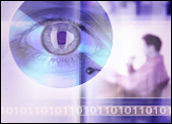
The U.S. House of Representatives on Wednesday rushed through a bill that puts increased responsibility on the shoulders of Internet service providers (ISPs) to police the Web for child pornography.
H.R. 3791, the Securing Adolescents From Exploitation-Online Act, requires that anyone providing Internet access — apparently including coffee shops, hotels and others offering WiFi service — report illegal online images involving children.
Penalties for those who fail to make such reports can be as high as US$300,000, according to the bill, which was sponsored by Rep. Nick Lampson (D-Texas). The bill passed 409 to 2, with only Texan presidential candidate Ron Paul and Georgia Rep. Paul Broun — both Republicans — dissenting.
“The Internet, while providing a world of opportunity to our children, has also contributed to a worldwide expansion of child pornography — enabling predators to more easily abuse, exploit, and prey on our children,” said Congressman Steve Chabot, a senior member of the House Judiciary Committee. “The SAFE Act will provide law enforcement with better tools and information to put child predators behind bars.”
Surprise Move
Passage of the Act in the House caught many ISPs off guard, due at least in part to the fact that it was rushed through under a procedure generally intended for noncontroversial legislation. The Act never received any hearing or vote since its introduction on Oct. 10, and though it underwent substantial revision since it was introduced, the current form was not available for public viewing beforehand.
In a nutshell, the SAFE Act requires that anyone providing an “electronic communication service” or “remote computing service” who learns about the transmission or storage of information about certain illegal activities or an illegal image must report what they learned to the National Center for Missing and Exploited Children’s (NCMEC’s) CyberTipline.
Specifically, after registering with NCMEC, they must report: (1) information on the Internet identity of the suspected sex offender, including the e-mail address, Web site address, URL or other identifying information; (2) the time the child pornography was uploaded or discovered; (3) geographic location information for the offender; and (4) the child pornography images themselves, for use as evidence.
This last requirement, it has been widely noted, asks ISPs to break the law themselves by saving and transmitting the offending content. Providers who comply with the Act, however, are promised immunity from civil claims or criminal charges that may result, except for certain intentional or reckless misconduct.
Meanwhile, the Act also requires NCMEC to forward reports, including the associated images, to a designated law enforcement agency.
Existing Requirements
The SAFE Act would be a replacement for an existing statute that already requires Internet service providers to report these types of illegal activities, Kate Dean, executive director of The U.S. Internet Provider Association (US ISPA), told the E-Commerce Times. The main difference will be that it revises and restructures the way such incidents must be reported, she said.
“US ISPA has long supported harmonized reporting of child pornography incidents to the National Center for Missing and Exploited Children, and we are encouraged to see the House take action to update the current statute,” Dean explained.
“ISPs report over 30,000 incidents a year and work closely with NCMEC and law enforcement on investigations,” she said. “By passing a bill updating the reporting statute, we hope that added clarity from Congress will promote robust reporting from all sectors of industry, and will provide law enforcement with additional tools to forward more investigations.”
What’s worrisome, however, is that the industry could be required to retain images of child pornography after reporting them to NCMEC, Dean added. “The better approach would be to require that the private sector turn any illicit images over to the proper authorities and not retain copies,” she said.
Boon or Bane?
Ultimately, what could be a boon for child safety could be a bane for WiFi, Internet and many other content providers, technology attorney Raymond Van Dyke told the E-Commerce Times.
The Act includes “eye-popping penalties and other potential liability implications for Internet, WiFi, broadband and other content providers, as well as individuals in the vicinity,” Van Dyke explained. “Namely, the industry fears that this could mean that we all become duly deputized Big Brother officers spying on one another.”
Looking forward, however, “it will be interesting to see what happens in the Senate discussions to make the clearly laudable intent of the bill work,” he added.












































Social Media
See all Social Media